Strong contracts are the backbone of many successful business relationships. But what happens when a contract renewal or contract extension comes up for consideration?
Understanding the key differences between these two terms is crucial for navigating the continuation of your agreements effectively.
What is a Contract Renewal?
A contract renewal signifies the creation of a completely new agreement to replace the existing one upon its expiration. This new contract allows both parties to renegotiate terms, pricing, and service levels based on current market conditions, performance history, and evolving needs.
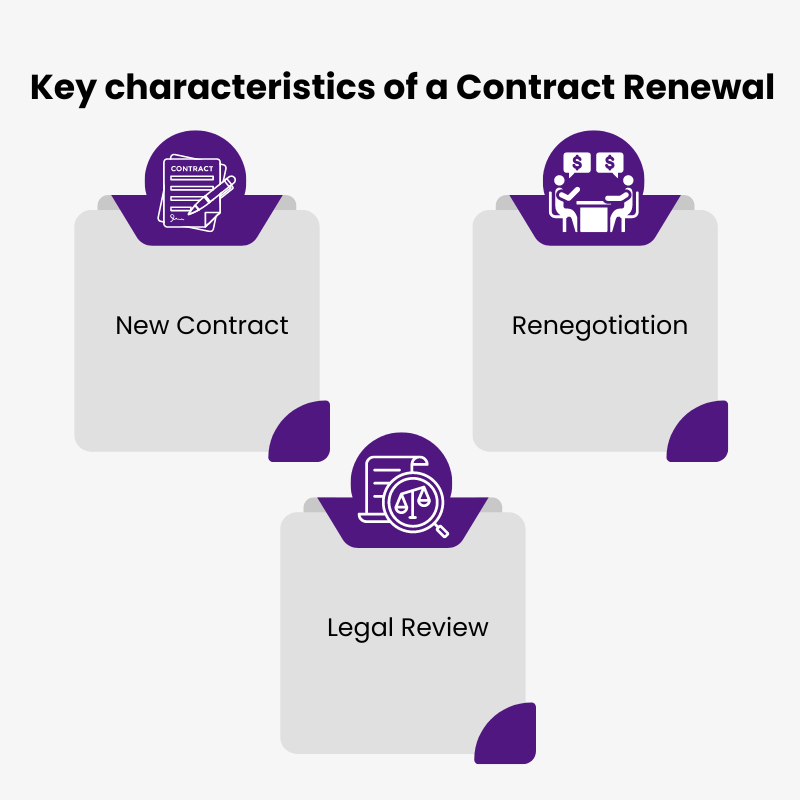
Here are some key characteristics of a contract renewal:
- New Contract: A renewal results in a brand-new legal document superseding the original contract.
- Renegotiation: All terms are open for discussion and potential modification. This includes pricing, service levels, timelines, and termination clauses.
- Legal Review: Due to the creation of a new contract, a thorough legal review is essential to ensure both parties are protected under the updated terms.
When to Opt for a Contract Renewal
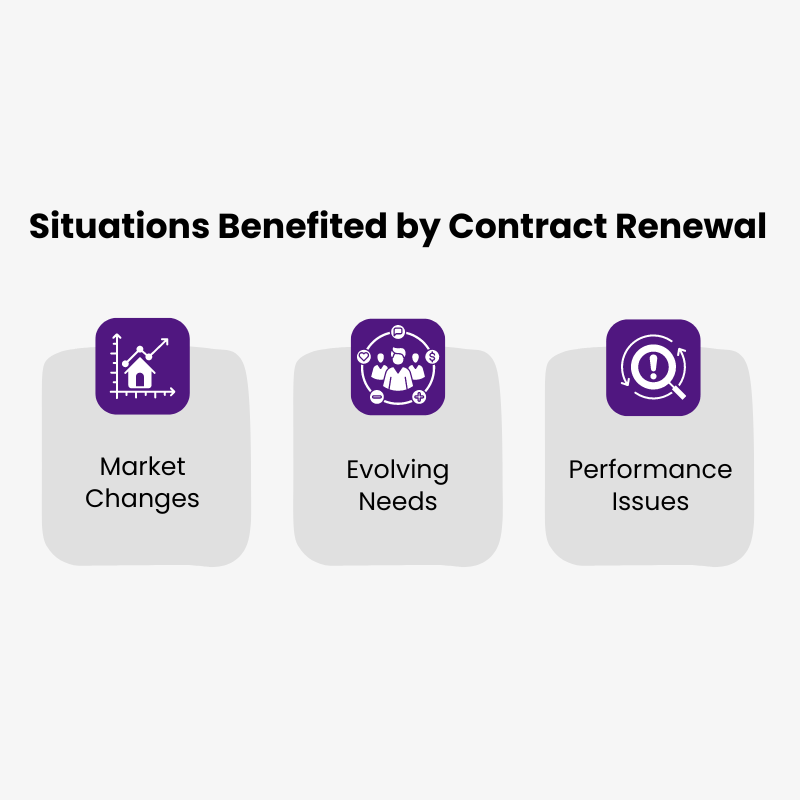
A contract renewal is a strategic decision that can be beneficial in several situations:
- Market Changes: If significant market shifts have occurred since the initial agreement, a renewal allows for adjustments to pricing, service features, or performance metrics to reflect current realities.
- Evolving Needs: Business needs can change over time. A renewal provides an opportunity to adapt the contract to better suit the current requirements of both parties.
- Performance Issues: If performance under the original contract has fallen short of expectations, a renewal allows for addressing these shortcomings through revised clauses or termination
What is a Contract Extension?
An extension of contract refers to the act of simply prolonging the duration of an existing contract without altering its terms. This is typically achieved through a brief addendum to the original document that clearly outlines the extended timeframe.
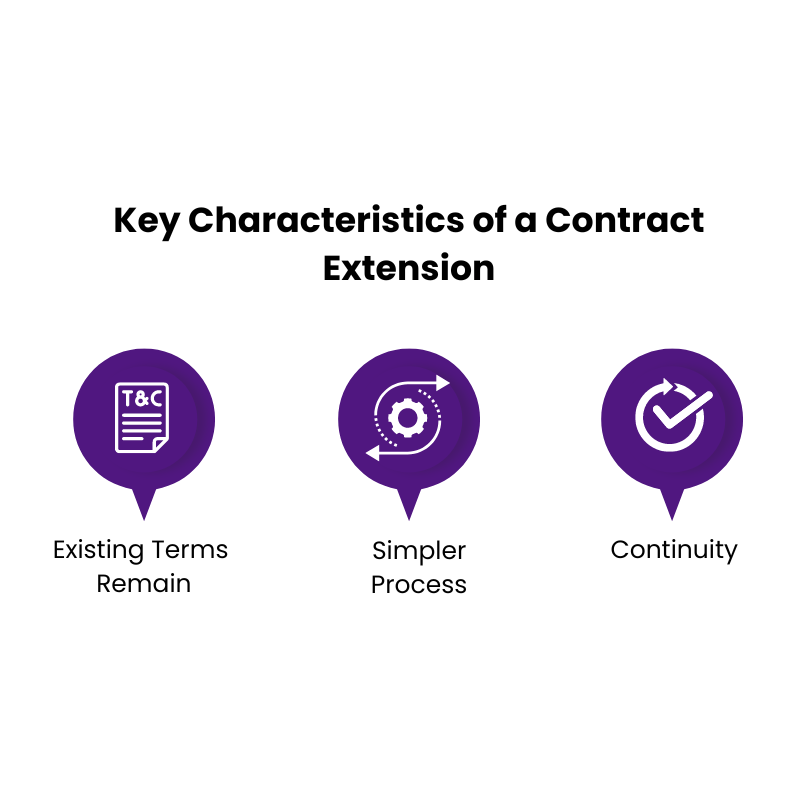
Here are some key characteristics of a contract extension:
- Existing Terms Remain: All provisions, pricing, and obligations outlined in the original contract remain unchanged in an extension.
- Simpler Process: Compared to a renewal, an extension is a less complex process, often requiring minimal negotiation or legal review.
- Continuity: Extensions are ideal when both parties are satisfied with the current arrangement and simply desire to continue the relationship for a defined period.
When to Opt for a Contract Extension
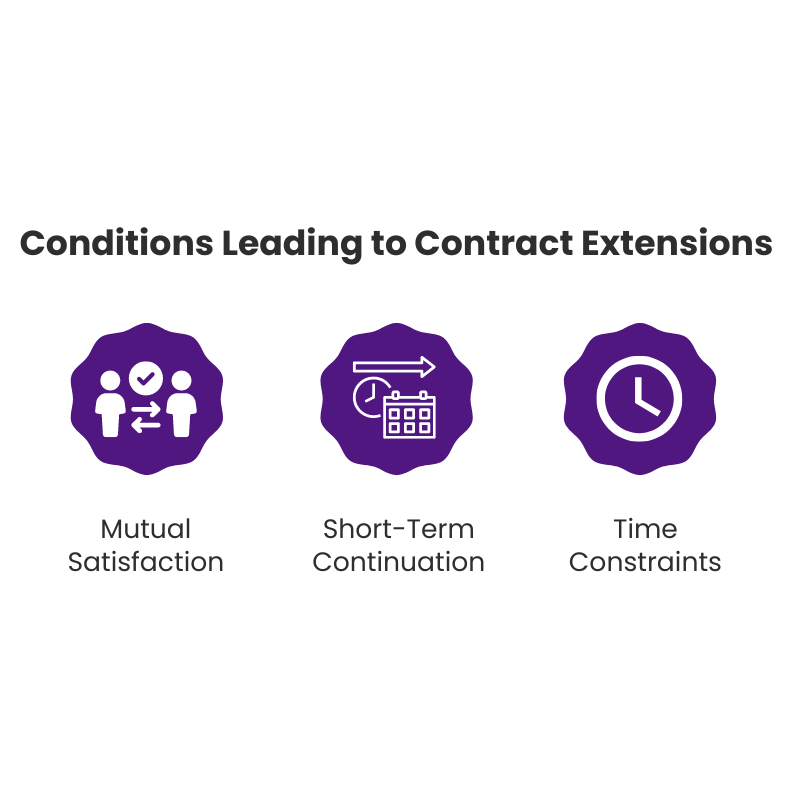
A contract extension is a suitable option when:
- Mutual Satisfaction: Both parties are content with the existing terms and performance under the contract.
- Short-Term Continuation: A short extension might be necessary to complete a project or finalize a specific task before renegotiating a more comprehensive agreement.
- Time Constraints: If time is of the essence, and a renewal process would cause delays, an extension can provide a temporary solution while long-term plans are formulated.
Contract Renewal vs Extension: A Side-by-Side Comparison
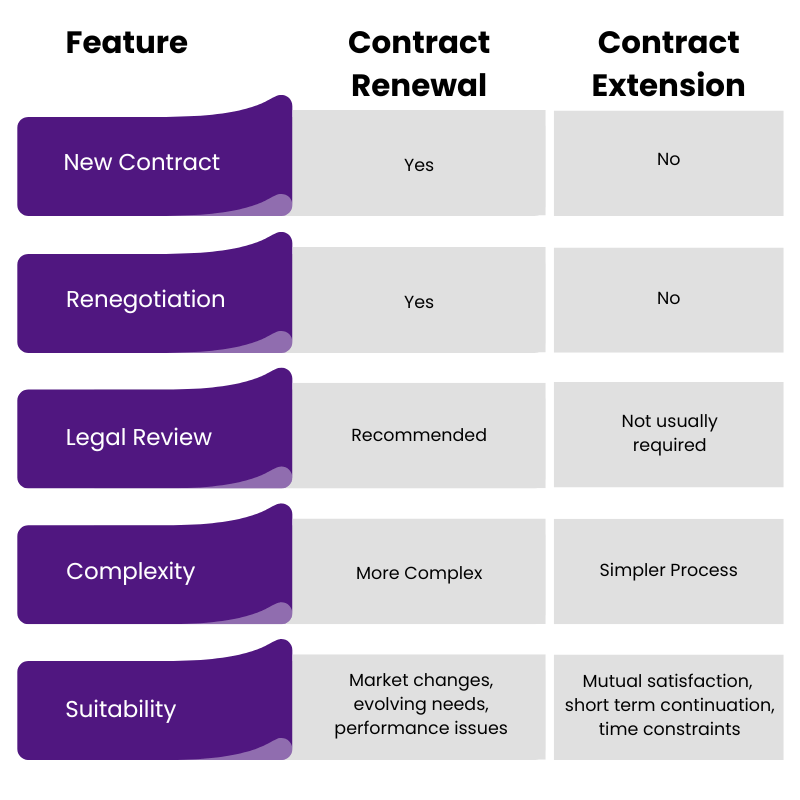
Navigating the Decision: Key Considerations

While we’ve explored the core differences between renewals and extensions, making the final call requires a deeper look at your specific situation. Here are some key considerations to guide your decision:
- Contractual Clauses: [Automatic Renewals] Certain contracts contain provisions for automatic renewals unless a termination notice is provided beforehand. Carefully review your contract to understand these clauses and act accordingly to avoid unwanted extensions.
- Proactive Planning: [Early Renewal Negotiations] Especially for renewals, initiating discussions well before the expiration is wise. This allows ample time for negotiation and ensures a smooth transition into the new agreement, avoiding last-minute scrambling.
- Notice Periods: [Notice Periods] Both renewals and extensions might have specific notice periods outlined in the original contract. Be mindful of these deadlines to avoid potential penalties or disruptions to your business operations.
Choosing Your Path: Renewal vs. Extension Strategies
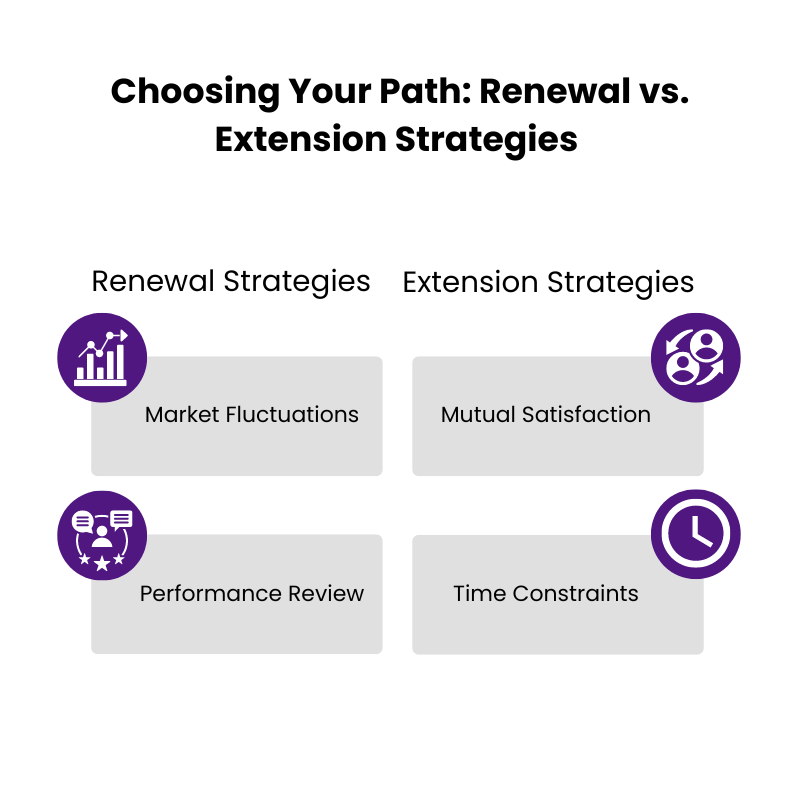
Now that you have a clearer picture of the contractual landscape, let’s delve into specific strategies for each option:
- Renewal Strategies: Renewals are ideal for adapting to change.
- Market Fluctuations: If significant market changes have occurred, a renewal allows for adjustments to pricing or service features to reflect current realities.
- Performance Review: Renewal discussions can address performance issues under the original contract through revised clauses or termination options if necessary.
- Extension Strategies: Extensions focus on maintaining momentum.
- Mutual Satisfaction: When both parties are happy with the existing terms and performance, an extension provides a smooth continuation without renegotiation.
- Time Constraints: If time is of the essence, an extension can be a temporary solution while long-term plans are formulated for a potential renewal later.
Understanding the distinction between contract renewals and contract extensions is crucial for effective contract management.
By carefully considering your specific situation, the current market landscape, and the needs of both parties, you can make an informed decision about the best approach for continuing your contractual relationship.
Clear communication and proactive planning are key to ensuring a smooth and successful transition, regardless of whether you opt for a renewal or an extension.




